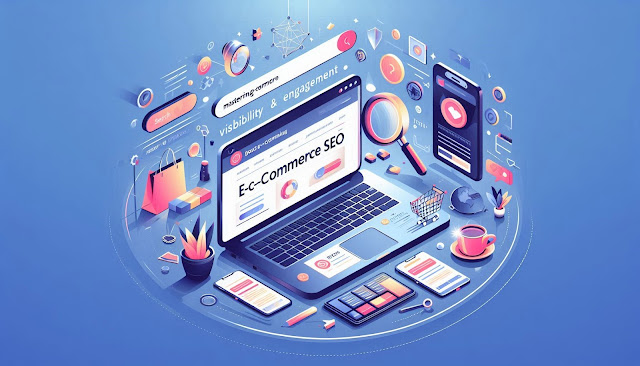Mastering E-commerce SEO: Boosting Visibility & Engagement


Search engine optimization (SEO) is the process of improving the visibility and relevance of your website or web pages on search engines like Google, Bing, or Yahoo. SEO can help you attract more organic traffic, increase conversions, and grow your online presence. But how can you improve your SEO? Here are some tips to help you optimize your website for search engines.
Keywords are the words and phrases that users type into search engines to find what they are looking for. To optimize your website for search engines, you need to know what keywords your target audience is using and how competitive they are. You can use tools like Google Keyword Planner, Moz Keyword Explorer, or SEMrush to conduct keyword research and find relevant and profitable keywords for your website.
Content is the king of SEO. You need to create high-quality, engaging, and informative content that matches the intent and needs of your users. You also need to optimize your content for your target keywords by using them in strategic places like titles, headings, meta descriptions, URLs, and body text. However, avoid keyword stuffing or overusing keywords as this can harm your SEO and user experience. Instead, use synonyms, variations, and natural language to make your content more readable and relevant.
Site speed is an important factor for SEO as it affects how fast your website loads and how well it performs on different devices. A slow-loading website can frustrate users, increase bounce rates, and reduce conversions. On the other hand, a fast-loading website can enhance user satisfaction, retention, and loyalty. To improve your site speed, you can use tools like Google PageSpeed Insights, GTmetrix, or Pingdom to analyze your website performance and identify areas for improvement. Some common ways to improve your site speed are:
Minify your code and compress your images
Use a content delivery network (CDN) to deliver your content faster
Enable caching to reduce server requests
Reduce redirects and broken links
Upgrade your hosting plan or server
Backlinks are links from other websites that point to your website. They are one of the most important signals for SEO as they indicate the authority, popularity, and trustworthiness of your website. The more quality backlinks you have, the higher your website will rank on search engines. To build backlinks, you need to create valuable and shareable content that other websites will want to link to. You can also use strategies like guest posting, outreach, social media promotion, or influencer marketing to earn backlinks from relevant and reputable websites.
SEO is not a one-time thing but an ongoing process that requires constant monitoring and analysis. You need to measure and track your SEO performance using tools like Google Analytics, Google Search Console, or Bing Webmaster Tools. These tools can help you understand how your website is performing on search engines, how much traffic you are getting, where your traffic is coming from, what keywords you are ranking for, what pages are performing well or poorly, and what issues or errors you need to fix. By measuring and analyzing your results, you can identify what is working and what is not working for your SEO and make data-driven decisions to improve it.
Conclusion
SEO is a powerful way to boost your online visibility and reach more potential customers. By following these tips, you can improve your SEO and grow your website traffic organically. However, remember that SEO takes time and effort and that you need to keep up with the latest trends and updates in the industry. If you need help with SEO, you can always hire a professional SEO agency or consultant to assist you with your SEO strategy and implementation.
Comments
Post a Comment